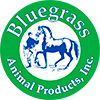Blog
10 Tips to make Trailering less stressful
First aid -When getting ready to trailer your horse make sure you have a first aid kit that has the basic supplies you might need if something is to happen. These supplies might include the following.
- Phenylbutazone (Bute)
- Banamine
- Non-stick bandages and gauze
- Bandage Scissors
- Alcohol
- Electrolytes
- Twitch
- Eyewash
- Thermometer
- Antiseptic ointment
- Self-sticking bandage
- Equiotic paste
Water– Have water jugs to give to the horse when you stop and also in case you get stuck somewhere.
Trailering stress -Trailering can be very stressful on your horse. As you are getting them ready to leave give them a tube of EquiOtic paste to help their body handle the stress of trailering.
Wrap Legs-Learn how to properly wrap legs. If you don’t want to wrap the legs invest in a good pair of shipping boots to protect their legs.
Emergency contact -Whenever you leave the farm with your horse you should keep an emergency contact sheet for you and your horse. On this you should have any medication you or your horse are allergic to, medications you take on a daily basis, who to call in case of emergency and your veterinarians number. It’s a good idea to have two copies of this in easy to find places, keep one copy in the truck and one inside the trailer door.
Changing tires– Changing a tire can intimidating, especially on a horse trailer. Whenever you leave the farm you should make sure you have the following available to you in case of an emergency. You should also practice changing a tire before you are in an emergency situation, you can have someone teach you how to properly change it.
- Flashlight
- Wheel chocks made for trailers
- Flares or warning triangles
- Membership to an equine roadside assistance service with service for both truck and trailer
- Tire iron
- Tire jack – drive-on type preferable or trailer jack
- WD-40
- At least one spare tire of the correct size, filled with air – check your tires often, including your spare for signs they may need replaced.
Extra food – Even the best-planned trips can run into trouble so when you travel, it is best to pack extra hay and at least one extra meal for your horse. Always bring extra daily medication for both you and your horse.
Practice loading– some horses just don’t like to get on the trailer, if this is the case you need to practice loading your horse at home. This way if you are needing to get your horse on and off the trailer fast it can be done in a safe way.
Extra halter and lead rope– even the best-behaved horse can spook or get stuck on something in the trailer and break their halter so you always want to make sure you have a backup halter and even lead rope. You always want to travel with a leather halter, or a halter with a break-away leather section on it.
Breakaway ties– Whenever you have your horse tied in your trailer or at your trailer you should have twine or some kind of safety release tie. That way if they pull away the tie or twine will break before your nice halter.
